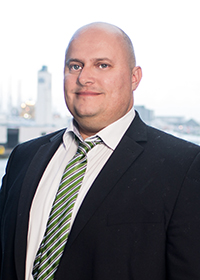Collaboration advances feasibility of CO₂ transport via repurposed Danish pipeline
Collaboration between DNV and Ørsted has been central to a major landmark in the development of Project Bifrost, a carbon capture and storage (CCS) initiative that aims to develop a concept for storing CO₂ underground of the Danish North Sea.
As a major landmark in the development of Project Bifrost, DNV has awarded a Statement of Feasibility (SoF) for the repurposing of Ørsted’s hydrocarbon pipeline for CO2 transportation. The study conducted by DNV confirmed the feasibility of re-qualifying the existing 24” diameter pipeline, which runs approximately 300 kilometers between the South Arne/Harald offshore platforms and the Nybro gas treatment plant in Western Jutland, Denmark.
The assessment, based on DNV’s recommended practice DNV-RP-F104 on design and operation of carbon dioxide pipelines, concluded with the issuance of a SoF, confirming that the pipeline is suited for further re-qualification to CO2 transport.

Mick Cramer Jakobsen, Vice President and Head of Customer Relations and Sales for Region Northern Europe, Energy Systems at DNV, said: 'The successful feasibility statement of Ørsted's pipeline to be re-qualified for CO2 transport is evidence to our commitment to advancing carbon capture and storage technologies. This project not only demonstrates the technical feasibility of repurposing existing infrastructure but also underscores the importance of collaboration in achieving our climate ambitions. Ensuring that solutions are safe, secure, and suitable for long-term use is important to achieve the climate goals.
Jesper Kok Frost, Project Manager at Infrastructure Assets, Ørsted, added: “We are pleased with the results of the feasibility study and look forward to continuing our work with DNV to ensure the safe and efficient transport of CO2. This project is a key component of our strategy to reduce carbon emissions and contribute to a sustainable future.”
The work preceding the SoF for re-qualification of the 24" pipeline led to new innovations on which DNV co-authored a paper in collaboration with Ørsted titled “Conversion of an Offshore Natural Gas Pipeline to CO2 Service, a Practical Approach to Avoiding Running Ductile Fracture”. This paper will be presented by Jesper Stavnsgaard, Senior Pipeline Engineer, Energy Systems at DNV, during the 20th Pipeline Technology Conference in Berlin on 5-8 May 2025, and could provide valuable information for other operators pursuing re-qualification of existing infrastructure to aid the energy transition.
